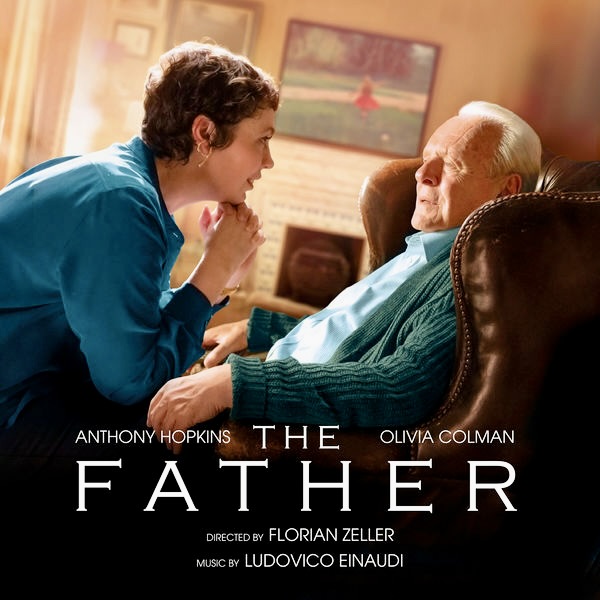Ready to have your heart broken? In America approximately one in every 5 people is a “Baby Boomer” born between 1946-1964. That’s about 72+ million people, and by 2030, we will all be aged 66 or older. It is estimated that 10 million of these individuals will develop Alzheimer’s disease, and among those who live to 85, nearly half will suffer from dementia.
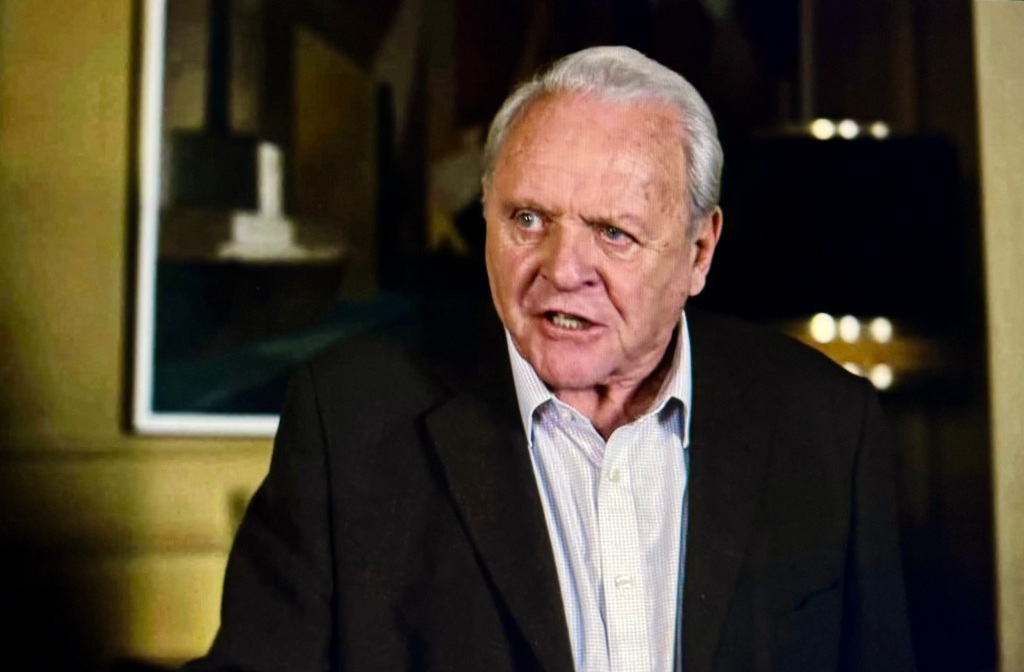
Learning to recognize the signs of dementia and how to cope with loved ones who are losing their mental acuity is becoming more and more essential, not only in caring for our loved ones, but in keeping marriages and families intact.
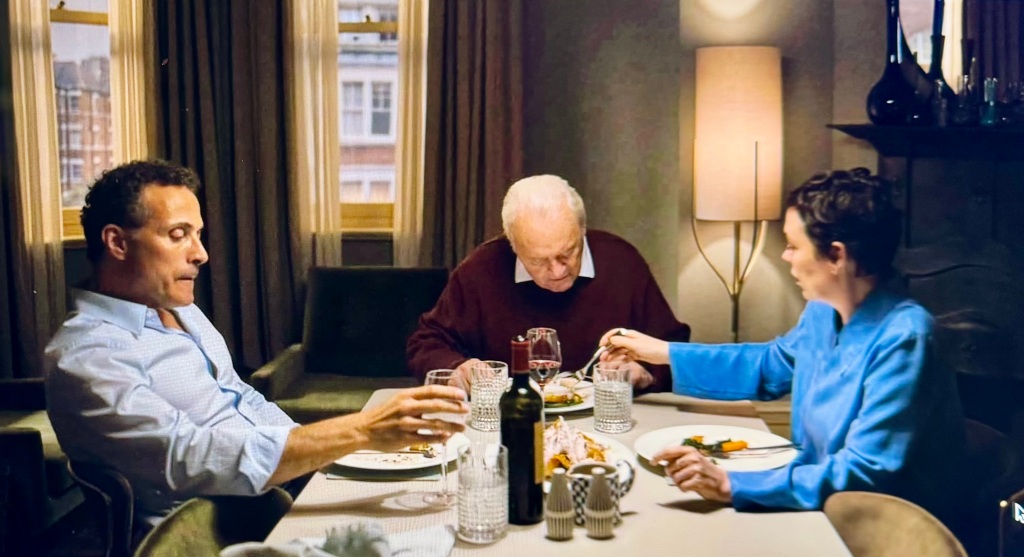
I have no fewer than six girl friends whose husbands are suffering from dementia at present, and another friend whose kids are in the midst of a gut-wrenching divorce due to the husband’s inability to handle the oppressive disorder in their home caused by a father-in-law who’s moved in with them since losing his wife. The tension, confusion, and disorganization of all that is a family’s “normal” is a major theme in the movie.
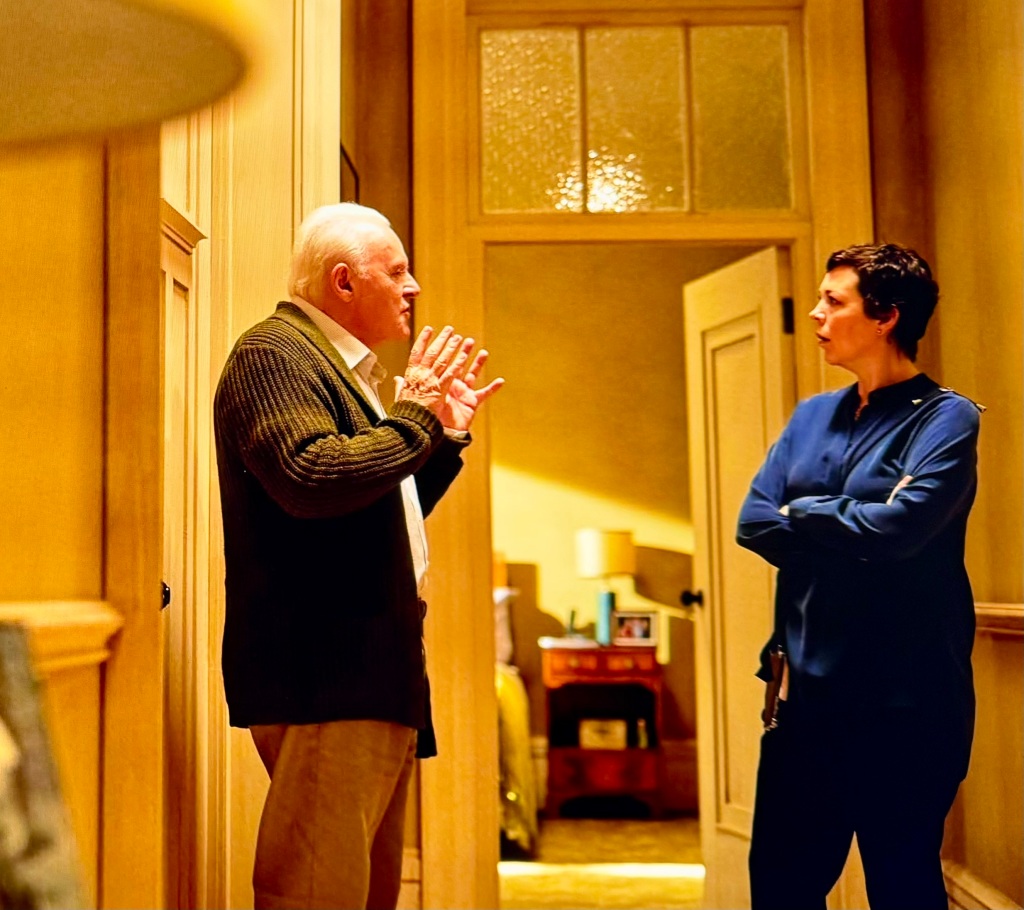
The Father (2020, PG-13, 1:37 [1 hour and 37 minutes long], and with a rating of 8.2 on IMBd by 185,000 people!) does an amazing job of depicting the destructive influence on a home by someone who is literally losing his mind and refuses to acknowledge or cope with it.
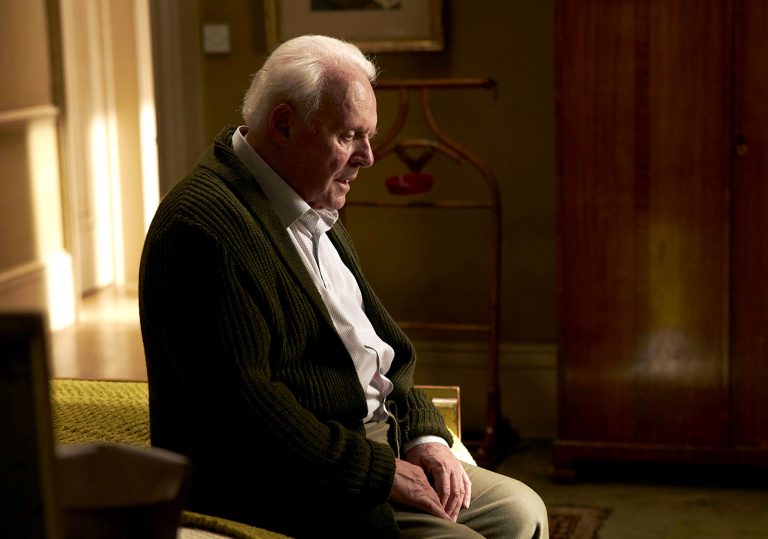
Anthony Hopkins is a master at portraying a man who can no longer make sense of reality. Alan, who spent most of his career as an internist helping geriatric (and psychiatric) patients, kept commenting on how realistically Hopkins played his role.
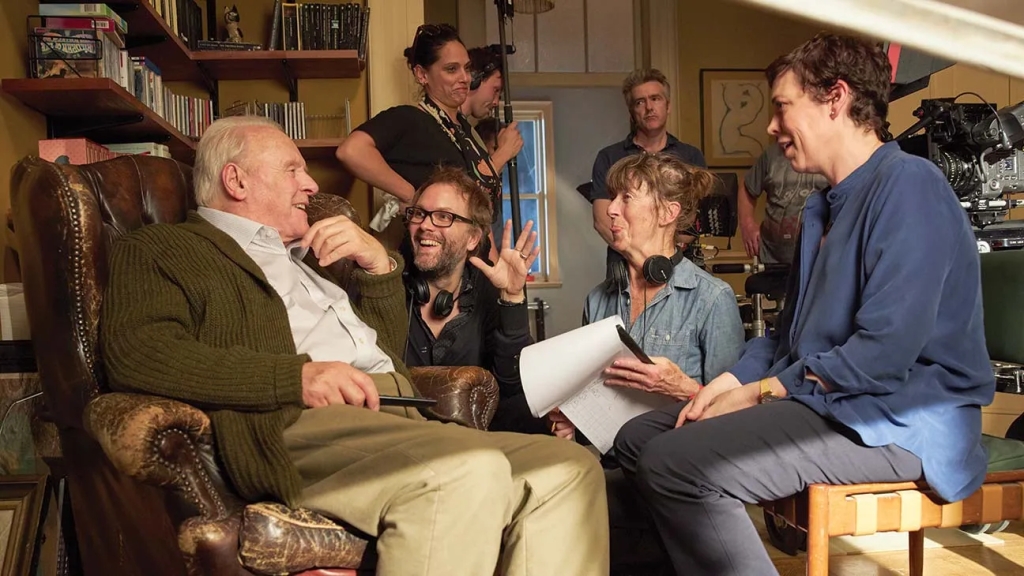
The whole team did a fabulous job with The Father. No wonder it garnered six nominations in the 93rd Academy Awards. Hopkins won Best Actor and Zeller and Hampton won Best Adapted Screenplay. Since then, it’s been heralded as one of the best movies from the 2020s and the 21st century!
For those of you who are married and struggling to take care of a self-focused (and likely somewhat senile) parent, may I offer this advice? Put the needs of your spouse and children first. I took my mother in when she had Alzheimer’s, and although she was a model of quiet patience, I was losing weight trying to care for an infant who was up to nurse in the night and a mother who was up tearing her room apart trying to pack for a trip or prepare for a PTA meeting. I was so tired I couldn’t see straight. Alan demanded that I not keep her in our home anymore, but I was too intent on loving mom to understand her presence was sinking our entire ship. (I was homeschooling 6 kids with a new baby and a husband who was overworked.)
At any rate, I probably would have died trying to “save” my mother. What really saved us was my understanding from the Bible that my husband was the head of the home, ultimately responsible for our family, and that I needed to submit to his authority whether or not I agreed with him. Looking back, that was one of the emotionally hardest decisions I ever made, but I believe it was the right decision, because it followed biblical teaching and bore the fruit of “peaceable righteousness” (Hebrews 12:11). When we marry, we are to “leave and cleave.” Honor our parents? Always. Obey them? No, not as adults. The needs of our spouse and children must become our first priority.
As a Baby Boomer facing the grim reality of my own future potential for mental loss, I’ve been trying to do everything I know how to do to keep my brain as healthy as possible. I’ve read you needn’t despair if you have a parent who had Alzheimer’s. A healthy person with a demented parent is actually at less risk of developing Alzheimer’s than a neighbor who has these high risk factors: obesity, diabetes, high cholesterol, chronic stress, hypertension, a sedentary lifestyle, strokes, or is a smoker or drinker. A healthy body and soul will go a long way toward keeping a brain healthy.
For those of you who sense you’re developing dementia, may I encourage you to embrace THE Father? God desires each of us to become his child by faith. (If you’re not sure how to become a child of God, please click on the “Coming to Christ” tab at the top of this page.) God is full of love, mercy, wisdom, and grace. He is faithful, and we can trust him to lead us “into paths of righteousness for his name’s sake” (Psalm 23:3) while we’re negotiating life on earth as well as rescue us “from every evil deed” and bring us “safely into his heavenly kingdom” when we die (2 Timothy 4:18, ESV). My parents put their trust in Christ as the way home to heaven (John 14:6) which made them more peaceful and relatively (“RELATIVELY”) easy to care for (although they both ended up in a nursing home). As we learn to trust and lean on THE Father, we will relax and be more able to trust our spouse and children to do the best they can to provide care for us.
Also—for your (our) consolation—even normal, healthy older folks have “senior moments” and memory lapses. If this is happening to you, don’t take it too hard. You may simply be normal, not snowballing down the drifts into insanity. Don’t panic, but if you’re not sure what’s happening anymore, please take the time to get your brain health assessed. It will either be reassuring that you’re okay or confirm that your memory is no longer as reliable as it needs to be to make wise decisions. Whatever happens, know that if you’re prayerfully resting in THE Father, He will take care of you. And, if you’re a child of God through faith in Christ, Jesus has promised, “I will never leave thee, nor forsake thee” (Hebrews 13:5). Jesus will walk with us through the dark shadows and bring us safely to heaven. We don’t have to be afraid.
“Fear thou not; for I am with thee: be not dismayed; for I am thy God: I will strengthen thee; yea, I will help thee; yea, I will uphold thee with the right hand of my righteousness” (Isaiah 41:10).
“Thou wilt keep him in perfect peace, whose mind is stayed on thee: because he trusteth in thee“ (Isaiah 26:3).
“For he that is entered into his rest, he also hath ceased from his own works” (Hebrews 4:10). As my father used to say, quoting John Milton who was grappling with “On His Blindness” and reflecting on the fact that we each have a place and role in God’s world: “They also serve who only stand and wait.”

